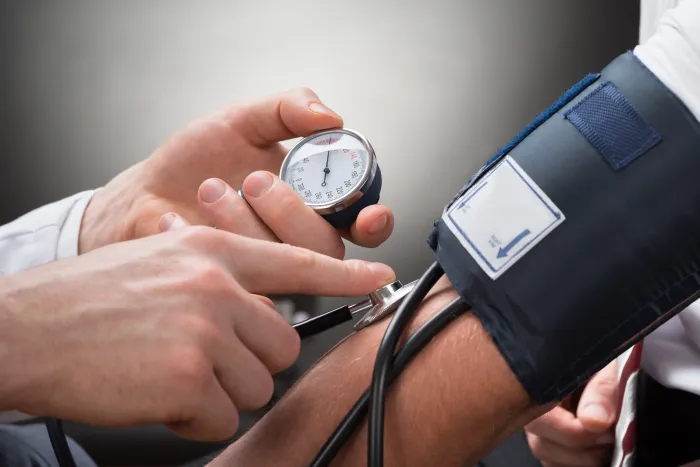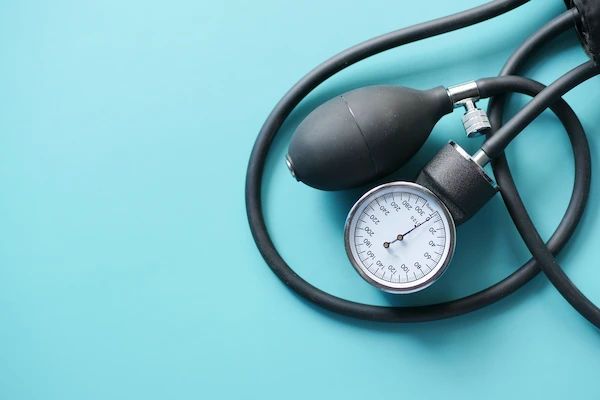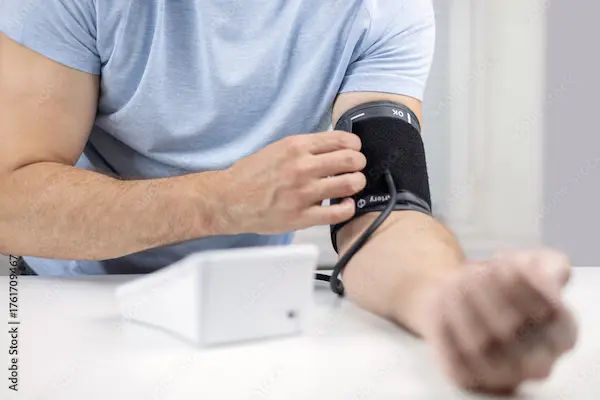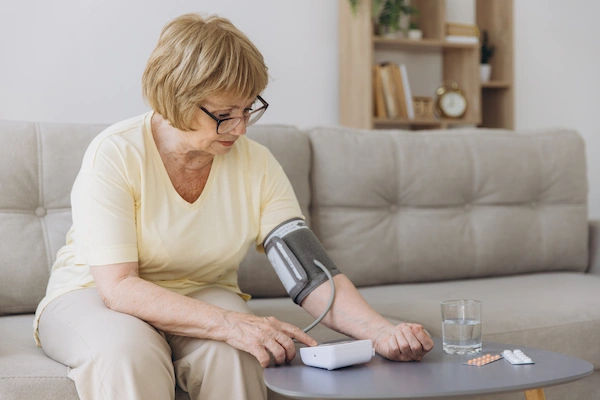Understanding Hypertension The Silent Forces Behind High Blood Pressure
Learn what causes hypertension, its risk factors, and how lifestyle, genetics, and underlying conditions contribute to high blood pressure.

Written by Dr. Md Yusuf Shareef
Reviewed by Dr. Dhankecha Mayank Dineshbhai MBBS
Last updated on 13th Jan, 2026

Introduction
Hypertension, or high blood pressure, is often called the "silent killer" for a reason. It affects nearly 1.3 billion adults worldwide (according to the WHO), yet many live with it for years without a single symptom. This lack of warning signs is precisely what makes it so dangerous. Uncontrolled high pressure silently damages your blood vessels, heart, brain, and kidneys, dramatically increasing your risk of heart attack, stroke, and other life-threatening conditions. But what exactly is happening inside your body? Is it just bad luck, or are there specific, identifiable triggers? This article will demystify hypertension by exploring the intricate pathways that lead to elevated blood pressure. We will break down the difference between primary and secondary hypertension, delve into the lifestyle choices that play a major role, and uncover the underlying medical conditions that can be the root cause. By understanding "what leads to what," you can take proactive steps to protect your long-term health.
What is Blood Pressure, Really? A Simple Analogy
Think of your circulatory system as a complex network of gardens. Your heart is the pump, and your blood vessels are the hoses delivering vital water (blood) to every plant (organ and tissue) in the garden. Blood pressure is the force exerted by the water against the walls of the hoses.
If the pump is too powerful, or if the hoses become narrow or clogged, the pressure inside them increases. This sustained high pressure is hypertension. Over time, it strains the pump (your heart) and can cause the hoses (your arteries) to weaken, leak, or burst.
Systolic vs. Diastolic: The Two Numbers Explained
When you get a blood pressure reading, you see two numbers (e.g., 120/80 mmHg).
1. Systolic Pressure (the top number): This is the pressure in your arteries when your heart beats and pumps blood out. It reflects how hard your heart is working.
2. Diastolic Pressure (the bottom number): This is the pressure in your arteries when your heart rests between beats. It indicates the resistance to blood flow in your vessels.
Both numbers are important, but for adults over 50, systolic pressure often becomes the more significant risk factor for cardiovascular disease.
Consult a Cardiologist for the best advice
The Two Faces of Hypertension: Primary vs. Secondary
Not all hypertension is created equal. Doctors categorise it into two main types, which have very different origins.
Primary (Essential) Hypertension: The Gradual Mystery
This is the most common type, accounting for about 90-95% of all adult hypertension cases. It’s called "essential" not because it’s necessary, but because it has no single identifiable cause. Instead, it develops gradually over many years due to a combination of genetic, lifestyle, and environmental factors. It’s like a puzzle where many small pieces come together to create the full picture of high blood pressure.
Secondary Hypertension: The Identifiable Culprit
This type is less common but often more severe. Secondary hypertension is high blood pressure that is directly caused by another underlying medical condition. It tends to appear suddenly and cause higher blood pressure readings than primary hypertension. The good news is that by treating the underlying condition, secondary hypertension can often be improved or even resolved.
Unmasking the Main Culprits: What Leads to Primary Hypertension?
While the exact cause of primary hypertension isn't pinpointed, decades of research have identified key contributors. These factors often interact, creating a cumulative effect on your blood pressure.
The Domino Effect of an Unhealthy Diet
What you eat has a direct and powerful impact on your blood pressure. The most significant dietary factor is the balance of minerals in your system.
The Sodium (Salt) Sensitivity Factor
Sodium attracts and holds water. When you consume too much salt, your body retains extra fluid to dilute it. This increases the total volume of blood in your bloodstream, which in turn increases the pressure on your artery walls. The American Heart Association recommends no more than 2,300 milligrams (mg) of sodium a day, with an ideal limit of 1,500 mg for most adults. However, the average intake is far higher, largely due to processed and restaurant foods.
The Potassium Deficiency Link
Potassium acts as a counterbalance to sodium. It helps your kidneys excrete sodium and eases tension in blood vessel walls. A diet low in potassium (found in fruits like bananas and oranges, and vegetables like potatoes and spinach) is almost as problematic as a diet high in sodium.
A Sedentary Lifestyle and Its Impact on Your Arteries
A lack of physical activity increases the risk of hypertension. Regular exercise makes your heart stronger. A stronger heart can pump more blood with less effort, which decreases the force on your arteries. Furthermore, physical activity helps keep your blood vessels flexible and healthy.
The Weighty Issue: How Obesity Strains Your System
Being overweight or obese requires your circulatory system to work harder to supply blood and oxygen to all your tissues. This increases the pressure on your artery walls. Excess weight is also closely linked to sleep apnoea, which further drives up blood pressure. Research shows that even a 5-10% reduction in body weight can significantly lower blood pressure.
Stress and Hypertension: The Modern Connection
While occasional stress spikes your blood pressure temporarily, chronic stress may contribute to long-term hypertension through unhealthy coping mechanisms. When stressed, you might eat poorly, drink more alcohol, or skip exercise—all behaviors that raise blood pressure. The hormones released during stress can also keep your blood pressure elevated over time.
Genetics and Family History: Are You Predisposed?
Hypertension often runs in families. If your parents or close relatives have high blood pressure, you are more likely to develop it. This genetic link likely involves subtle differences in how everyone’s kidneys manage sodium or how their blood vessels regulate tone.
The Role of Age and Hormonal Changes
As we age, our blood vessels naturally lose some of their elasticity and become stiffer, which can lead to an increase in blood pressure. For women, hormonal shifts during menopause can also increase the risk, as the protective effect of estrogen diminishes.
Underlying Conditions That Cause Secondary Hypertension
When a specific medical condition is behind high blood pressure, it's classified as secondary. Identifying and managing these conditions is crucial.
Kidney Disease: A Primary Driver
Your kidneys play a central role in regulating blood pressure by controlling fluid and salt balance. Kidney disease, artery narrowing leading to the kidneys (renal artery stenosis), or kidney tumors can severely disrupt this balance, leading to hypertension.
Hormonal Disorders (Endocrine Tumors, Thyroid Issues)
Conditions like hyperthyroidism (overactive thyroid) or Cushing's syndrome (excess cortisol) can cause hypertension. Tumors on the adrenal glands (e.g., pheochromocytoma) can release hormones that spike blood pressure dramatically.
Obstructive Sleep Apnoea: The Nighttime Threat
This condition, characterised by repeated stopping and starting of breathing during sleep, causes sudden drops in blood oxygen levels. This strains the cardiovascular system and can lead to consistently high blood pressure. If you snore loudly and feel tired after a full night's sleep, it’s a good idea to discuss this with a doctor.
Medications and Supplements That Can Raise BP
Certain drugs can cause or worsen hypertension. These include:
• Nonsteroidal anti-inflammatory drugs (NSAIDs like ibuprofen)
• Decongestants
• Birth control pills
• Some antidepressants
• Herbal supplements like licorice
Always inform your doctor about all medications and supplements you are taking. If you are on long-term medication and notice changes in your blood pressure, consulting a doctor online with Apollo24|7 can help you understand the potential interactions.
Conclusion: Empowering Yourself for Better Heart Health
Understanding the pathways to hypertension is the first and most crucial step toward prevention and management. While factors like age and genetics are beyond our control, the powerful levers of diet, physical activity, weight management, and stress reduction are firmly in our hands. Hypertension isn't an inevitable fate; it's often the result of cumulative choices. By making consistent, heart-healthy decisions—choosing fresh foods over processed ones, finding ways to move your body daily, and prioritising sleep and relaxation—you can significantly influence your blood pressure and, by extension, your long-term health. Remember, knowledge is power. Use this understanding not to fear, but to act. If you are concerned about your blood pressure or risk factors, consulting a doctor is the best next step. You can easily book a physical visit or an online consultation with a specialist through Apollo24|7 to create a personalised plan for your heart health.
Consult a Cardiologist for the best advice
Consult a Cardiologist for the best advice

Dr. Venkatesh T K
Cardiologist
10 Years • MBBS, MD (Med), DNB (Cardio)
Bengaluru
Apollo Hospitals Jayanagar, Bengaluru
(75+ Patients)

Dr. Sarita Rao
Cardiologist
17 Years • MBBS, DM (Cardiology)
Indore
Apollo Hospitals Vijay Nagar, Indore
Dr.bino John Sahayo J
Cardiologist
18 Years • Fellowship in Intravascular Imaging, DNB (Cardio),DM (Cardio), DNB (Gen.Med),MD (Gen.Med),MBBS
Chennai
Apollo Speciality Hospitals OMR, Chennai

Dr. Sumanjita Bora
Cardiologist
9 Years • MBBS, PGDCC
Bengaluru
Apollo Clinic, Sarjapur Road, Bengaluru

Dr. Dayanashre N
General Physician
3 Years • MBBS
Bengaluru
PRESTIGE SHANTHINIKETAN - SOCIETY CLINIC, Bengaluru
Consult a Cardiologist for the best advice

Dr. Venkatesh T K
Cardiologist
10 Years • MBBS, MD (Med), DNB (Cardio)
Bengaluru
Apollo Hospitals Jayanagar, Bengaluru
(75+ Patients)

Dr. Sarita Rao
Cardiologist
17 Years • MBBS, DM (Cardiology)
Indore
Apollo Hospitals Vijay Nagar, Indore
Dr.bino John Sahayo J
Cardiologist
18 Years • Fellowship in Intravascular Imaging, DNB (Cardio),DM (Cardio), DNB (Gen.Med),MD (Gen.Med),MBBS
Chennai
Apollo Speciality Hospitals OMR, Chennai

Dr. Sumanjita Bora
Cardiologist
9 Years • MBBS, PGDCC
Bengaluru
Apollo Clinic, Sarjapur Road, Bengaluru

Dr. Dayanashre N
General Physician
3 Years • MBBS
Bengaluru
PRESTIGE SHANTHINIKETAN - SOCIETY CLINIC, Bengaluru
More articles from High blood pressure hypertension
Frequently Asked Questions
1. Can anxiety cause permanent hypertension?
While anxiety causes temporary spikes in blood pressure, it is not generally considered a direct cause of permanent (chronic) hypertension. However, chronic stress can lead to behaviors (poor diet, alcohol use) that do contribute to long-term high blood pressure.
2. What are the symptoms of hypertension in women?
Hypertension is typically symptomless in both men and women. However, some women may experience specific issues related to hormonal changes, such as increased blood pressure during pregnancy (preeclampsia) or after menopause.
3. How quickly can lifestyle changes lower blood pressure?
Dietary changes, like reducing salt, can show effects within a few weeks. Regular exercise can begin to lower blood pressure within a few months. Consistency is key for long-term management.
4. Is secondary hypertension more dangerous than primary?
It can be, as it often leads to much higher blood pressure levels. However, because it has an identifiable and often treatable cause, it can sometimes be cured, whereas primary hypertension is usually managed lifelong.
5. Can you have high blood pressure without being overweight?
Absolutely. While obesity is a major risk factor, thin individuals can develop hypertension due to genetics, a high-salt diet, high stress levels, or underlying medical conditions (secondary hypertension).
.webp)
_1.webp)


